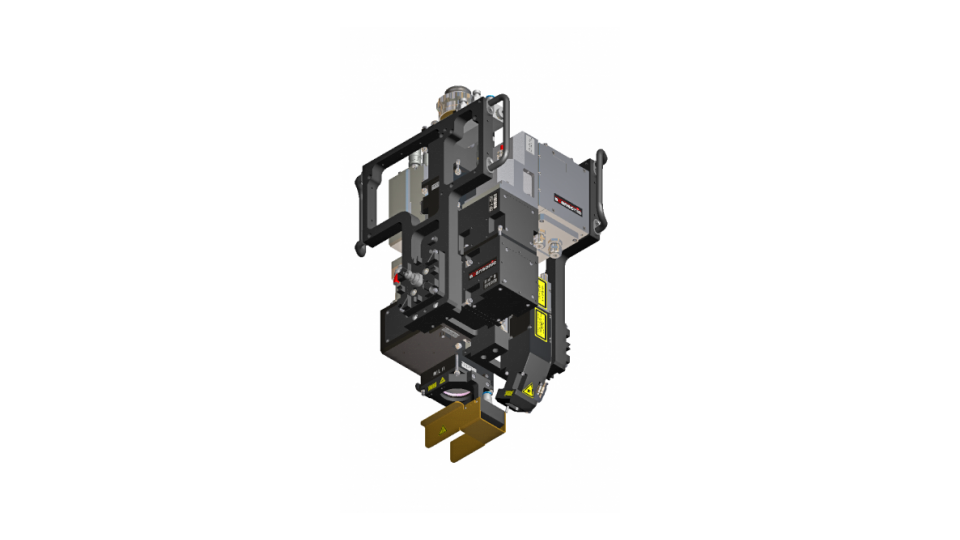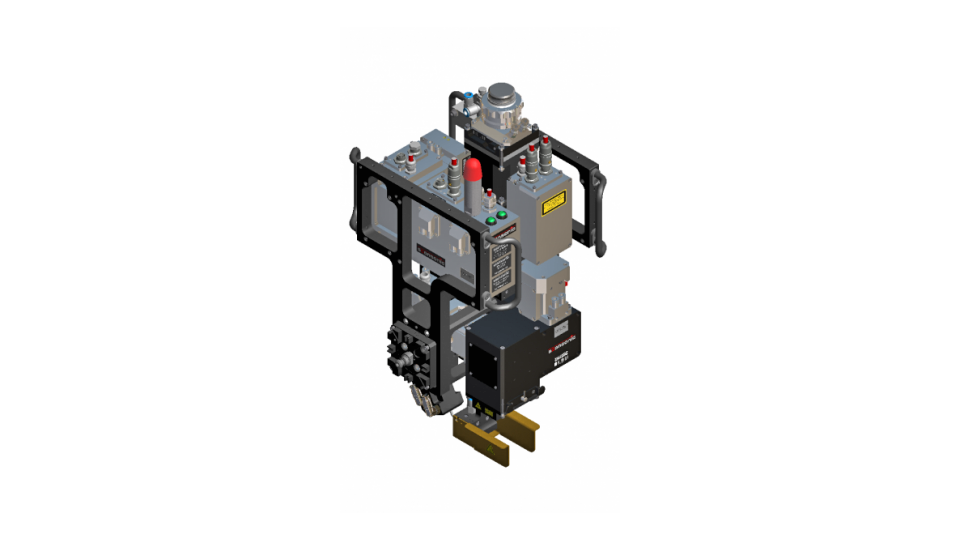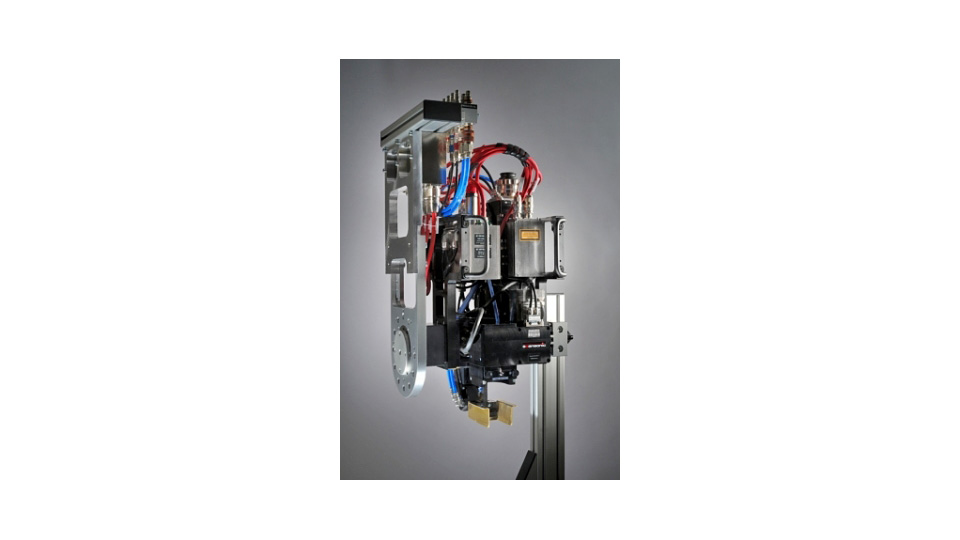RLW-A | Reduced cycle times with contactless seam tracking
The RLW-A sets new standards in contactless fillet welding and enables overlap joints to be replaced by fillet welds. This reduces joint flanges and requires less laser energy for the same seam cross-section. The processing optics ensure precision, dynamics and reproducibility along with cost-effective operation.
Function description
The RLW-A system combines optical seam tracking with scanner axes. During the robot movement, the system measures the joint and controls the highly dynamic scanner levels online. Measuring precision is ensured by the patented coaxial guidance of laser beam and measurement light in the same optical system. The position of the laser spot remains precisely on the joint. This makes remote fillet welding possible on 3D body-in-white components.
Areas of application
- Laser welding
- Fillet welds e.g. on attached assemblies (doors, decklids, etc.), A and B pillars, front/rear bumpers, door sills, roof, and vehicle underbody
- Fillet welds on T and lap joints, open edges
- Adjustable offset defines overlap seams to the abutting edge
- On-the-fly pattern welding of lap joints
Advantages
- Fillet welds enable reduction of flange lengths in vehicle construction
- Lower weight reduces fuel consumption and CO2 emissions
- Large working distance allows overrunning of clamps and fastening fixtures in the process, significant reduction in cycle time compared to tactile systems
- Application-specific scan fields for significant reduction in consumption costs
- Simplified operating concept with all laser process parameters set via the RLW-A GUI and controlled/regulated by the RLW-A controller
- Spot size is adjusted via autofocus and kept constant during the process using the seam-tracking values
- Combination tool for high-productive welding of fillet joints as well as for pattern-welding
Properties
- Robust seam tracking
- Easy parameterization of seam tracking through separate parameteriziation software (GUI)
- Simple parameterization of welding patterns using geometry parameters
- Plug & Play processing system – an autonomous system with a simple robotics communication – no complex sensor-robot interface is require
- No relearning of path programming necessary - based on standard welding optics
- Scanners with highy dynamic adjustment reaction up to 1000Hz
- Thanks to the configurable modular design, the customer can choose the functions that he needs for his production
Supported Laser
- Fibre laser
- Disk laser
Further product information
- Fiber couplings for the following types of fiber optic cables: Trumpf-B,Trumpf-D, Optoskand QBH
- Fieldbus types: Profibus, Interbus, Profinet, Devicenet, Ethernet/IP
- Interface laser power: Current and voltage interface
- Protective glass drawer at fiber coupling
Options
- Scan field to choose (small and medium)
- 2-D modulation scanner system
- SCEYE observation camera and process logging
- Velve terminal for cross-jets and cone jets
- Gap bridging
- On-the-fly seam tracking
- Pre-integration of PLASMO pso-sensors
- Integration of OCT Sensorik from Lessmüller possible
- Robot interface to synchronize the movements of robot with the scanners
| Power supply extern/intern | 400 V - 6A / ± 24 V - max. 55A |
| Weight | Approx. 25 kg (depending on configuration) |
| Wavelength | 1030 ... 1080 nm (Disc laser to fibre laser) |
| Laser power | max. 8 kW |
| Total angle of acceptance Φ; BPP | Φ = 250 mrad (99% power capacity); BPP ≤ 25 mm∙mrad |
| Optical ratio | 1:2.9 |
| Scanning field of operations | X = ± 32 mm / Y = ±16,5 mm / Z = ± 10 mm |
| Focal distance | Approx. 280mm at focal length of f = 500 mm |
| Positional accuracy with seam tracking | X = 0,1 mm / Y = 0,1 mm / Z = 0,5 mm |
| IP protection degree | 64 |
| Laser protection class | 4 |
Contact us
Service
Technical Service
phone +49 - 30 - 91 20 74-311
Mon - Sun 8 a.m. - 4 p.m. (Sat/Sun for emergencies)
fax +49 - 30 - 91 20 74-333
e-mail service@scansonic.de


